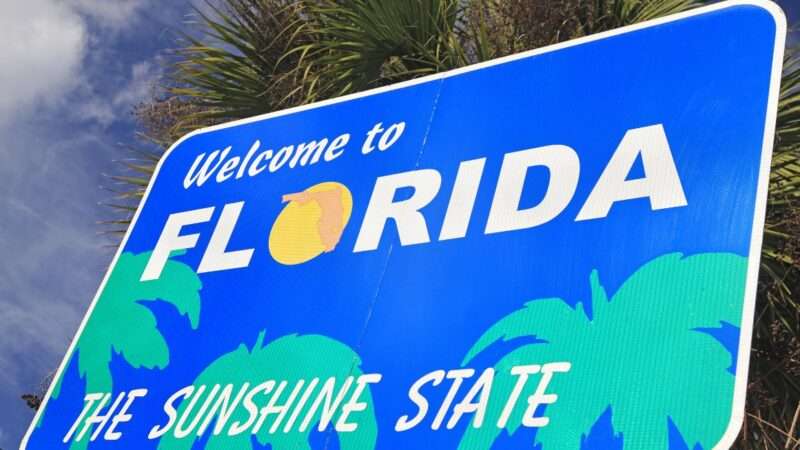
Bills filed in Florida would allow law enforcement agencies to hide the names of police and correctional officers who kill people.
Such legislation was widely expected after the Florida Supreme Court ruled in December that police departments could not invoke Marsy’s Law, a crime victims’ rights law adopted by Florida voters in 2018, to hide the names of officers involved in deadly shootings. The ruling was much broader than expected, though, and stripped privacy protections from civilian crime victims as well.
The legislation is one of several efforts in the Republican-controlled Florida Legislature to further insulate police in the Sunshine State—once lauded for its expansive public record laws—from scrutiny. As Reason reported yesterday, two other bills advancing through the Legislature would ban cities and counties from forming civilian police oversight boards.
State Rep. Chuck Brannan (R–Macclenny) filed House Bill 1605 and House Bill 1607 earlier this month. The former would expand the definition of “crime victims” to include “law enforcement officers, correctional officers, or correctional probation officers who use deadly force in the course and scope of their employment or official duties.”
The latter would exempt records that could be used to identify and harass crime victims from the state’s public records law unless the victim opts to have it disclosed. “The Legislature finds that the release of any such information or records that could be used to locate or harass a crime victim or the victim’s family could subject such victims or their families to further trauma,” the bill says.
The bills have the backing of powerful police unions in the state as well. “For people to exclude police officers just because we wear the badge and we protect and serve, that’s not fair to us,” John Kazanjian, president of the Florida Police Benevolent Association, told the Tampa Bay Times.
The legal battle over whether law enforcement was covered by Marsy’s Law began in 2020 after reporters filed records requests for the names of the officers involved in two fatal police shootings in Tallahassee. The Florida Police Benevolent Association filed a lawsuit against the city to prevent disclosure, arguing that the identities of the officers were confidential under a provision of Marsy’s Law that protects “information or records that could be used to locate or harass the victim or the victim’s family, or which could disclose confidential or privileged information of the victim.”
In another case in 2022, the Marion County Sheriff’s Office invoked Marsy’s Law to attempt to shield the identities of six jail deputies involved in the death of Scott Whitley, a mentally ill man who died during a violent cell extraction after being bumrushed, tased, and pepper-sprayed.
However, the conservative Florida Supreme Court disagreed with the police unions. “One’s name, standing alone, is not that kind of information or record,” Florida Supreme Court Justice John D. Couriel wrote. “It communicates nothing about where the individual can be found and bothered.”
In the Florida Supreme Court case last year, opponents of police secrecy included not just media organizations and civil rights groups but also supporters of Marsy’s Law.
“When reviewing the conduct of an on-duty law enforcement officer who has used physical force, the right to privacy of their name must quickly yield to the public’s right to know,” Marsy’s Law for Florida told the Tallahassee Democrat in October.
It’s an example, once again, of crime victims being invoked by lawmakers and law enforcement—and ignored when their opinion is inconvenient.
The post Florida Bills Would Hide the Names of Police Officers Who Kill People appeared first on Reason.com.
from Latest https://ift.tt/8IMdbc7
via IFTTT